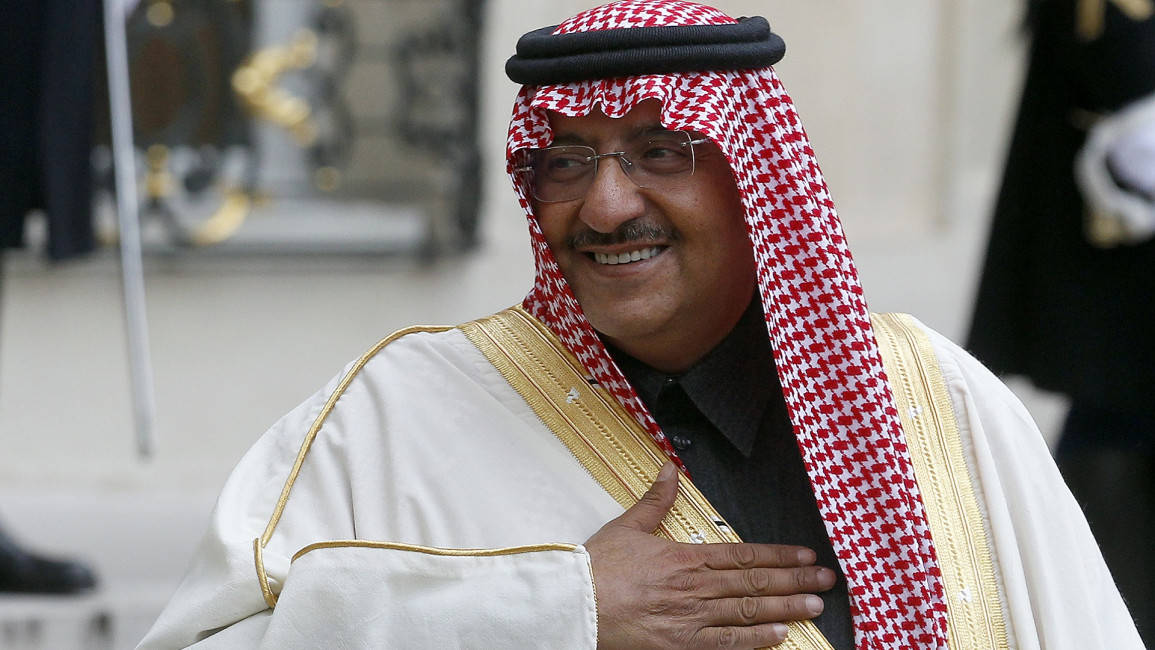HRW raises alarm over safety of imprisoned former Saudi Crown Prince, political detainees
The rights group said that the current location of the former Crown Prince, who was arrested last March, remains unknown. Although bin Nayef has been allowed to telephone some members of his family, he has not been allowed visits from them or from his personal doctor.
"Saudi authorities appear intent on making certain detainees and their loved ones suffer even further by denying them the ability to hear each other's voices and know for certain they are ok," said Michael Page, deputy Middle East and North Africa director at Human Rights Watch.
Lawyers for Mohammed bin Nayef said they did not know whether he was receiving treatment for his diabetes or not, adding that there were "serious concerns" over his health and well-being. Many other Saudi political prisoners have died in prison due to medical neglect.
Mohammed bin Nayef was appointed Crown Prince of Saudi Arabia in April 2015, three months after current King Salman bin Abdulaziz assumed the leadership of Saudi Arabia. However, he was removed from his position in June 2017 by Mohammed bin Salman, King Salman's son who is widely seen as the de facto ruler of Saudi Arabia.
|
|
Mohammed bin Salman succeeded Mohmmed bin Nayef as Crown Prince. Twenty other senior Saudi princes including King Salman's younger brother Ahmad bin Abdulaziz and Mohammed bin Nayef's half-brother Nawaf, were also arrested in March.
Last month Mohammed bin Nayef's lawyers told The Financial Times that he had not been seen for five months. Lawyers for Saudi political detainees rarely speak to the press and the fact that they did so on this occasion suggested that bin Nayef's life was in danger, according to a source who spoke to the US news website The Daily Beast.
In its Sunday statement, Human Rights Watch also expressed concern over the safety of other political detainees, including noted Islamic author Salman Al-Awdah.
Al-Awdah, 69, has been denied any contact with his family since May. He has been held since September 2017 on a number of vague charges related to his political statements and opinions, none of which involve incitement to violence, and could face the death penalty.
Human Rights Watch also said that a number of imprisoned women's rights activists were also still being denied contact with their families. Loujain al-Hathloul, who was arrested in 2018 and tortured in prison, was allowed to see her family on 31 August after going on hunger strike for six days.
The NGO urged Saudi authorities to allow independent international monitors to enter the country to regularly monitor prison and detention facilities, and to carry out impartial investigations into allegations of torture and suspicious deaths in detention.
"Following the devastating deaths of prominent detainees in suspicious circumstances, Saudi Arabia's allies should demand that they immediately release all those unjustly detained for exercising their basic rights before it’s too late," Page said.
"The families of detainees held incommunicado should not have to spend another day anxiously wondering what has become of their relatives."
Follow us on Facebook, Twitter and Instagram to stay connected



